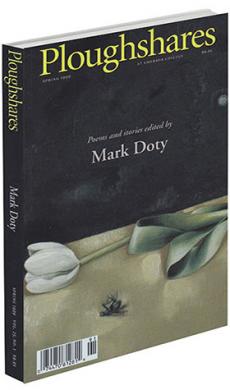rev. of The Foreign Student by Susan Choi
The Foreign Student
A novel by Susan Choi. HarperFlamingo, $23.00 cloth. Reviewed by Don Lee.
At first, finding any similarities between South Korea and Tennessee in the 1950’s might seem impossible, but Susan Choi manages to do just that in her lyrical first novel,
The Foreign Student.
In 1955, Chang Ahn flees war-battered Seoul and arrives at the University of the South in Sewanee, courtesy of a scholarship from the Episcopal Church Council. Shy and diffident, he is often baffled by the strangeness of Southern culture and people, from his roommate whose wealthy father is a Klansman, to the protocol involved when fraternizing with the colored help, to questions from curious church members, one of whom asks Chang, quite sincerely, if Koreans live in trees. Everywhere he goes, Chang feels “a subtle, unremitting scrutiny, disguised as politeness . . . varying in tone or intensity but always bringing with it the same slight electrification, as if he weren’t just caught in a narrow beam of light but somehow animated by it.” It becomes preferable to Chang to withdraw, burying himself in his calculus studies. He knows no one could comprehend his past, his nightmarish memories of the Korean War. His father, a professor who once enjoyed privilege and status, was imprisoned and disgraced;
Chang’s best friend, a communist, disappeared as a fugitive; and Chang himself, after working as a translator for the U.S. Information Services, was accused of being a spy and tortured mercilessly.
In Sewanee, his only outside contact becomes Katherine Monroe, a lively New Orleans heiress who has ensconced herself in her family’s old summer home. She, too, has a past. At fourteen, she began an affair with Charles Addison, her father’s best friend, who teaches Shakespeare at the university and is nearly thirty years her senior. Despite being disowned by her mother, Glee, over the affair, Katherine has continued as Addison’s mistress, living on proper society’s margins. She and Chang are drawn to each other from their first meeting, discovering an affinity that transcends race and country, that has more to do with wounds and estrangement: “Sometimes she was sure that the distance she felt between them wasn’t difference, but a wariness they both turned toward the world.”
In Susan Choi’s hands, Chang and Katherine, as they slowly fall in love, find that they — and the Souths of Korea and Tennessee — are not that different after all, both subject to lingering issues of class, family, race, and civil war.
The Foreign Student is hardly a perfect book. It is too elliptical in structure, and Chang’s “delicate courtesy” too often makes for a passive, opaque character. But the novel is well worth reading for its poetic language, its ambitious story, and the complexity invested in every relation.

